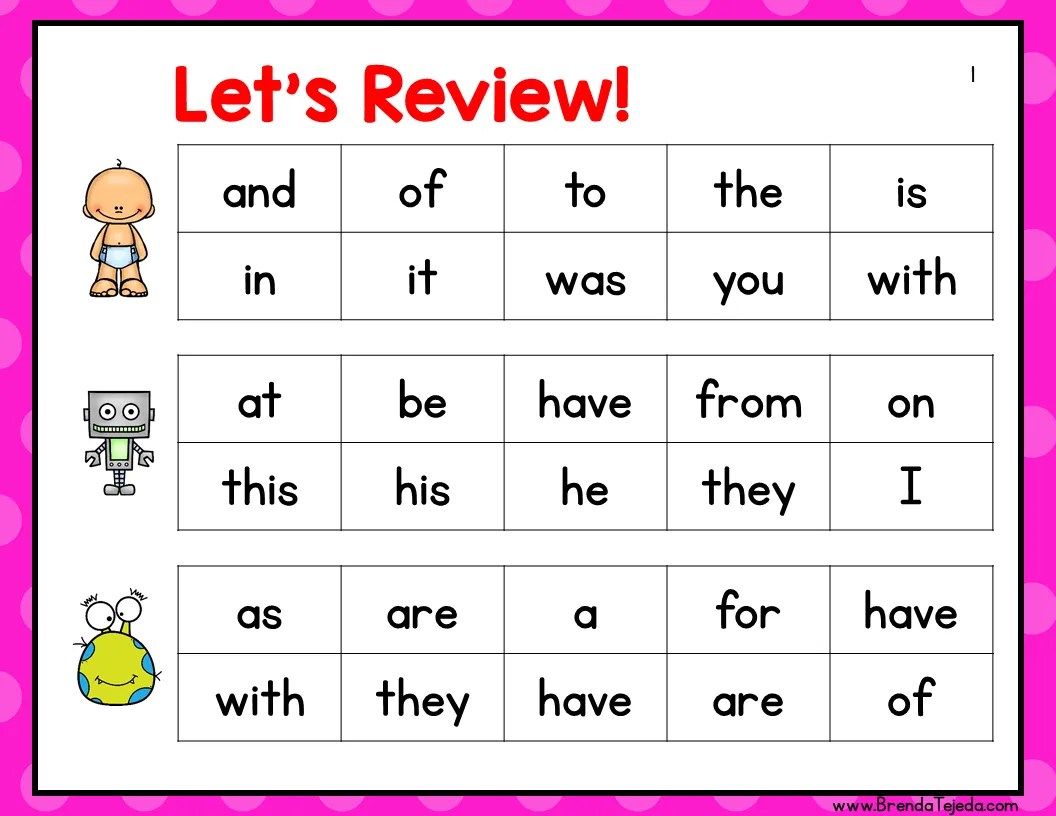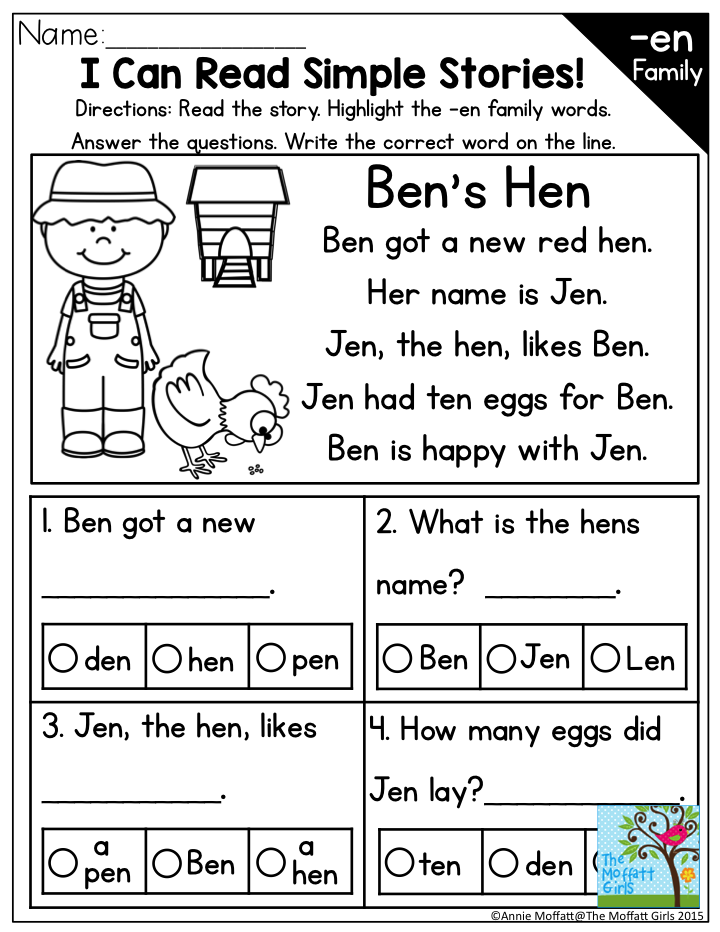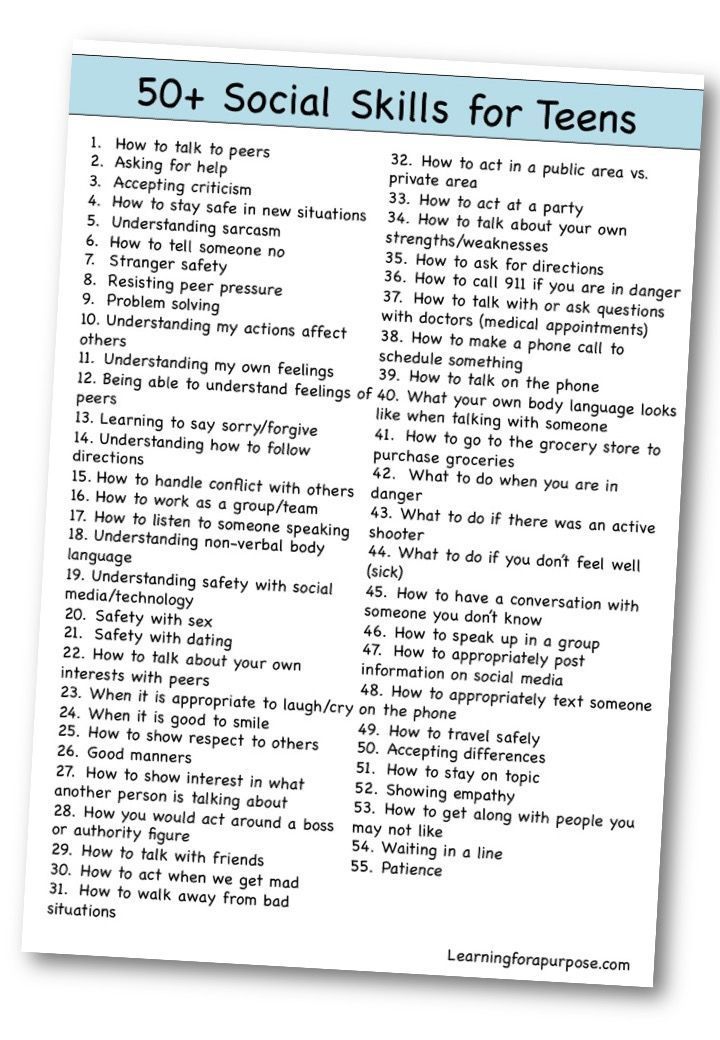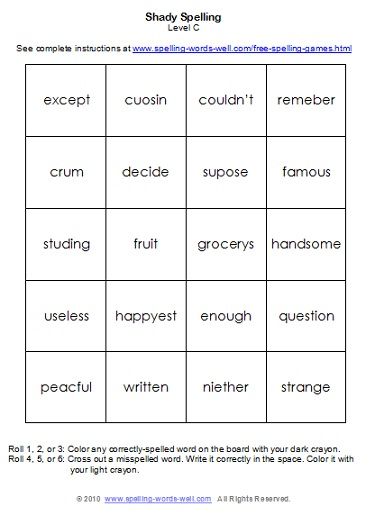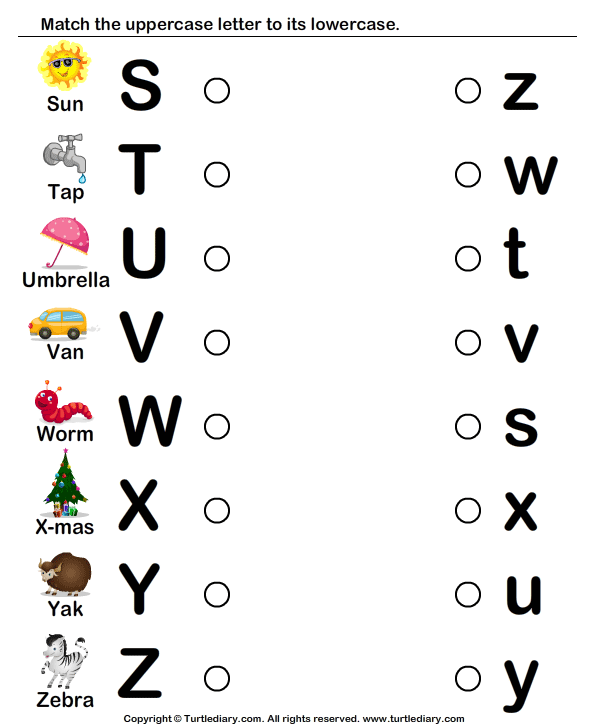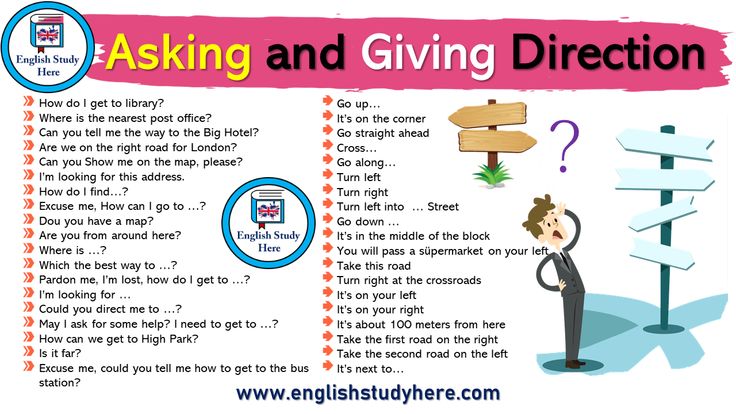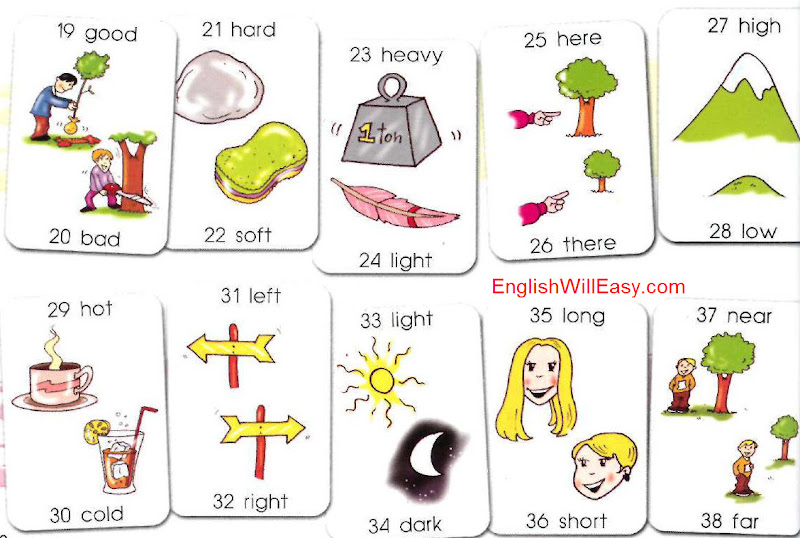Sight words 4 year olds
8 Ways to Teach Sight Words to Preschoolers (2023)
Learning sight words is a critical skill for kids to learn how to read!
Teaching children how to learn sight words can be a challenge.
Why?
Because it all comes down to memorization. There is not a way to sound out these words. In case you are unfamiliar, sight words are words like that don’t follow the traditional rules of spelling or can’t be sounded out phonetically. Some examples of sight words are who, does, and come.
To give your preschooler a great jump start to reading, I have come up with 8 EASY ways that you can teach your preschooler sight words!
#1. Start With TWO Letter Sight Words
Does anyone have a toddler that says no to absolutely everything?
You’ll be hearing it all over again when you start teaching sight words because the word “no” is one of the easiest ones to recognize!
When you start out teaching a child sight words, it’s important to start small and build up to longer words. Starting with TWO letter words for them to memorize is going to be a lot easier than FOUR letter words.
Here are some two-letter sight words that you can start with: of, to, is, in, it, he, on, as, at, be, or, by, we, an, do, if, up, so, no, go
Once your little one has mastered the two-letter words, you can move onto three or more letter words!
While some of the words on this list can be sounded out and others can not, I think it’s easier to have your child just memorize the words so they can say it at a glance.
Here is a list of sight words for each age/grade level?
I use the above sight word checklist when I am deciding what new words to teach my daughter!
#2. Choose Sight Words In Your Child’s Favorite Books
I have a quiz for you.
How many sight words can you find in this sentence below from the book, Where the Wild Things Are?
“His mother called him “WILD THING!” and Max said “I’LL EAT YOU UP!” so he was sent to bed without eating anything.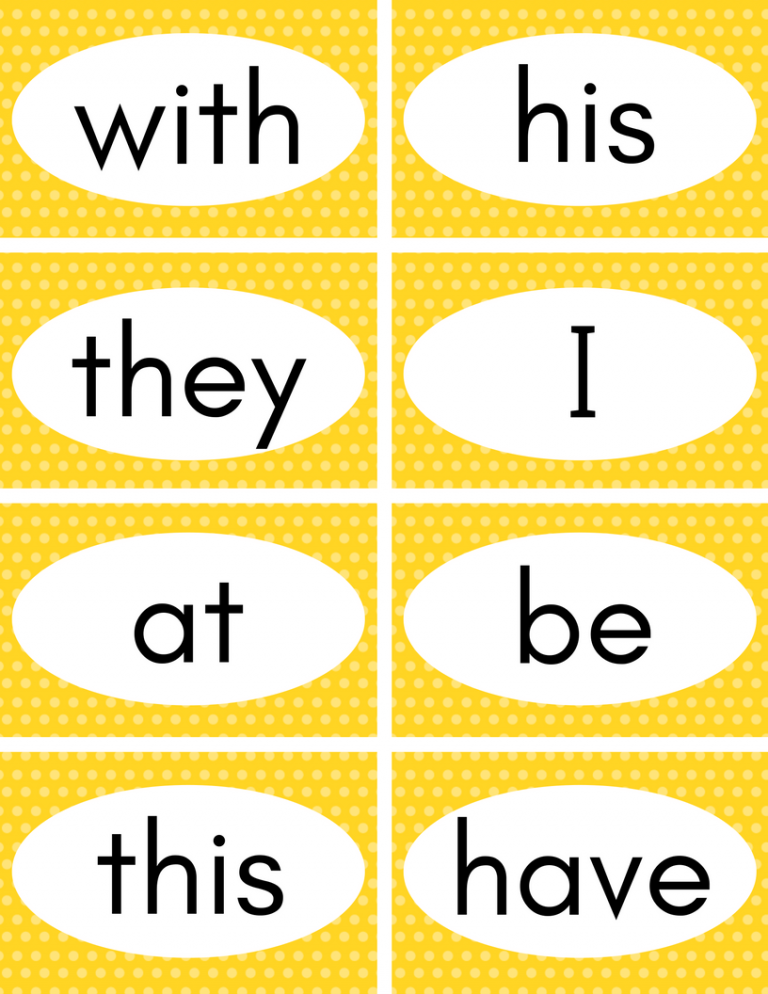 ”
”
I found 12 sight words in that one sentence!
- (his, him, wild, and, said, eat, you, up, so, he, was, to)
Sight words are referred to as high-frequency words because some of them are the most common words in the English language!
When you are reading to a child, and they are starting to learn sight words, make sure to point out the words in their favorite books. They will be more interested in learning the sight words if it’s in a context they enjoy! We have a subscription to Highlights Magazine, and my daughter loves pointing out which words she recognizes.
Your kids will feel so proud when they can read a few words in their favorite stories. It will encourage them to want to learn more!
#3. Practice Daily
Just like teaching your kids the alphabet, numbers, and shapes, it takes repetition for them to understand the material!
At least a few minutes of work on sight words each day will help them immensely when it comes to memorizing sight words.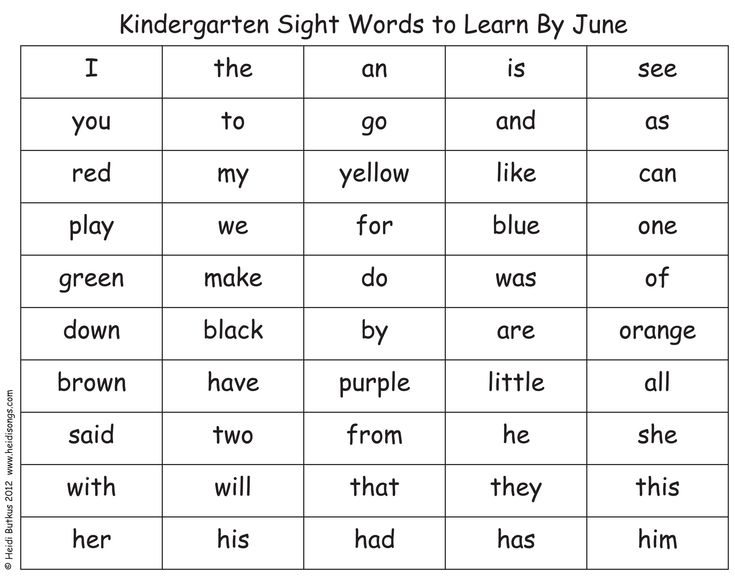
Here is what works best for my daughter:
I write the sight words that we have previously learned on a small dry erase board, which I limit to about 25 max.
Check Amazon's Price
We take some time and review those words plus add one or two new words depending on how well she does during the review.
Check out this short video of how I review the sight words with my daughter!
To ensure that she remembers the sight words we learned, I make sure to include ones that we learned in the past.
Tip#4: Make Reading Fun!
If I just focused on the above activity over and over again, I think I would struggle badly getting my kids to learn how to read.
It’s essential to come up with EXCITING ways to teach your kids how to read!
Here are FOUR ways to make learning sight words engaging!
Activity #1. Shaving Cream Sight Words
Shaving cream is such an amazing sensory activity! Your kids will be so excited to use shaving cream for a learning activity, it won’t even feel like they are learning!
I use men’s foaming shaving cream because I think it works the best! But other types can be used as well.
How to do this activity:
1. Spray foam shaving cream on an art tray.
2. Spread it out so the shaving cream is all over the tray!
3. Write a sight word that you are working on in the shaving cream and ask your child if they know what it is.
4. Repeat this process over and over again! Let your child erase the words so they get a chance to play in the shaving cream!
Activity #2.
 Do-A-Dot Painting Activity
Do-A-Dot Painting Activity
Do-A-Dot painters are one of my MUST-HAVE supplies to have on hand at your house.
They are so much fun to play with and they are pretty much MESS FREE! Can’t beat that right?
Do-A-Dot markers can be used for so many fun and learning activities. This specific activity was great because it worked recognizing a specific sight word while getting to paint!
GRAB YOUR FREE Pre-K Sight Word Do-A-Dot WORKSHEETS HERE!
(Each grade level coming soon!)
Check Price - Amazon
Want to check out my other MUST-HAVE Supplies? Take a look at my list HERE!
Activity#3. Play Sight Word Games
My new thing is trying to turn games into a learning activity!
My kids love to play board games, so why not add a little bit of learning into the mix while getting to play?
How to do this activity:
1.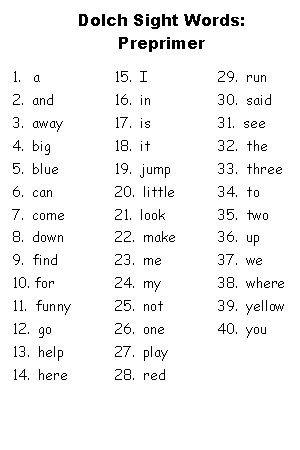 Materials you need- Don’t Break the Ice Game, dot stickers, and a marker.
Materials you need- Don’t Break the Ice Game, dot stickers, and a marker.
Check Amazon's Price
2. On white dot stickers, write some sight words that you are working on with your little one. I wrote one that my daughter already knew so she could play the game and be successful!
3. Explain to your kids that they have to tap lightly on the ice with the hammer instead of trying to hit it as hard as they can because a lot falls at once that way. Tell them they can play the regular way after you practice the sight words. 🙂
4. Ask them to find a specific word and tap on it with the hammer or they can tap on a word of their choice and tell you what it says!
5. After they say or find all the words, then you can play the normal way!
Activity #4. FUN Worksheets
My daughter loves to color, so I created this Popsicle themed Color by Sight Word Worksheet for her to do.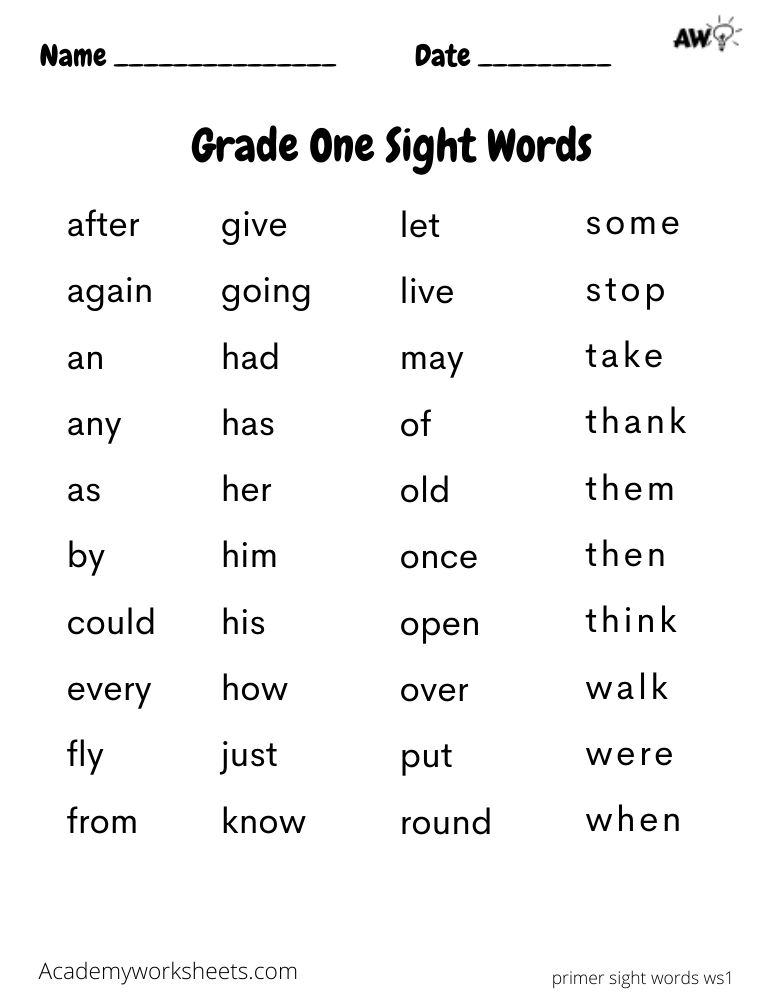
Here are some excellent workbooks available on Amazon that have activities ready to go!
- 100 Write and Learn Sight Word Practice Pages
- Wipe Clean: Learning Sight Words
- The Best Sight Word Book Ever!
Don’t want to buy an entire workbook? I am constantly working on new FREE resources to make available for you.
Click here to grab your FREE Popsicle Color by Sight Word WORKSHEET!
Also, take a look at the other FREE RESOURCES that I have while you are there!
#5. Build Sentences with Sight Words
Building sentences using sight words is a GREAT way to show your child how the specific word is used in real life.
You can do this by verbally saying sentences or you can also do it in an interactive way.
We have a bunch of Thomas the Train, train tracks at home, so I thought it would be fun to work on sentence building with sight words with them!
How to do this activity:
1. Materials you need- Thomas the Train tracks, labels, and a marker.
Materials you need- Thomas the Train tracks, labels, and a marker.
View/ Check Amazons Price
2. On labels, write some sight words that make sense in a sentence that you kids know or you want them to learn!
3. Spread them all apart so they have to work on building the sentence so it makes sense. They will have to read each word then create the sentence!
#6. Add A New Word Each Day
Once your child can recognize words, you can start introducing at least one new sight word each day. In the beginning, you want to start slow.
Since sight words are based on memorization, that’s why learning one word a day is perfect for this age level.
While you should introduce one new word a day, remember to review past sight words that you practiced with them before. It’s crucial to go over these sight words so they won’t forget them.
Remember they are still preschoolers, repetition is key!
#7.
 Stay Positive!
Stay Positive!
You never want to rush the learning process.
Forcing preschoolers to sit and complete work when they are not ready may cause the child to think negatively about learning.
You want your child to be EXCITED to learn.
Don’t get frustrated if they don’t catch on right away or if it takes them a few days to master a word. It will happen with time, and they will feel successful if you encourage them!
There are times that my daughter can just not grasp on to a word.
For example, she had trouble memorizing the word “find.” I asked her every day for TWO weeks about this word, and she still wasn’t getting it. I decided I was going to take a break and come back to it later. I introduced the word to her again after about a month, and now she has no problem with it!
As parents, we have to be patient with our children while they are learning.
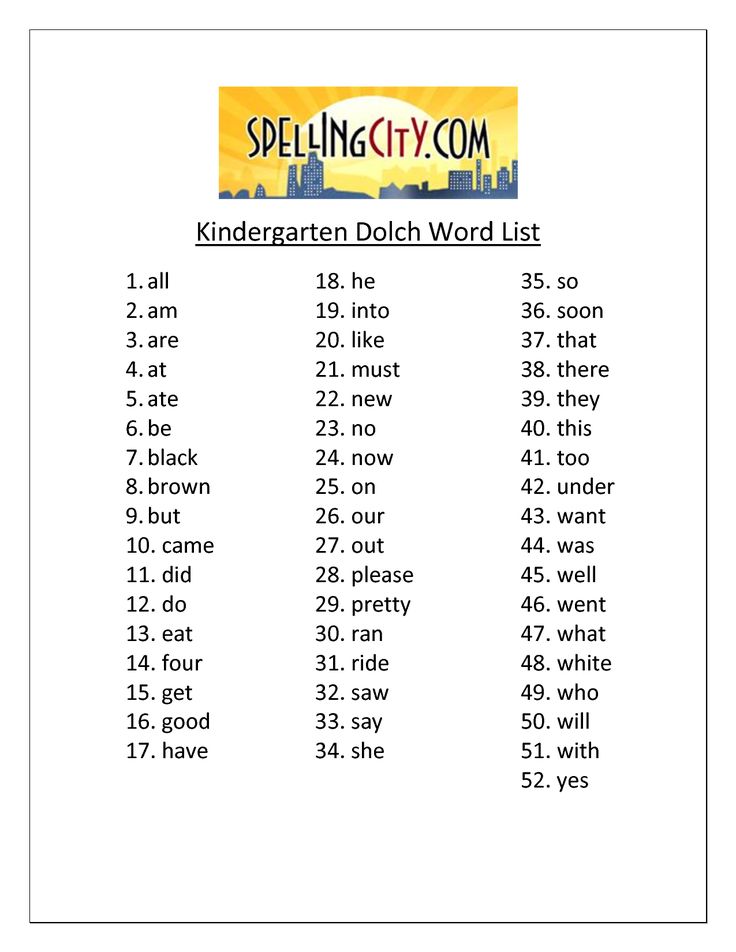
We are supposed to be their biggest cheerleaders! Tell your child how proud you are when they learn a new word. They will feel your excitement and, in return, be more excited to keep on learning new material!
#8. Join An Online Learning Program
One great website that works on early reading skills is Kickstart Reading.
Kickstart Reading– This is such a fantastic reading program! I also have a promo code that you can use to get some money off of your subscription! You will receive a FOREVER plan for $39.00(normally $57.00). This is a program that focuses solely on reading, which I think is better than anything else out there. Your little ones will learn about phonetics, sight words, vowel sounds, digraphs and MORE!
PROMO CODE: ABCDEE
Here is a short demonstration of just one of the segments included on Kickstart Reading. This is my 5-year-old daughter working on word blends.
This is my 5-year-old daughter working on word blends.
Final Thoughts and Conclusion
Deciding when to start your preschooler’s journey into reading is a fun but challenging adventure!
It’s important to start slow, begin with two letter sight words, and stay positive with them! Try to mix up the activities that you do with them to learn sight words to keep them engaged and excited to learn!
I would love to help you on your journey to teaching your preschooler sight words. Whether you need some creative ideas or you need more helpful suggestions, please leave a comment below.
If you have any great ideas that you would like to share as well on what helped you teach sight words to a preschooler, please share them with us!
Three Letter Words for 4 Year Olds
Do you want to start teaching your child to read and want to know what words he needs to learn? If you do, then read on for suitable words and teaching tips.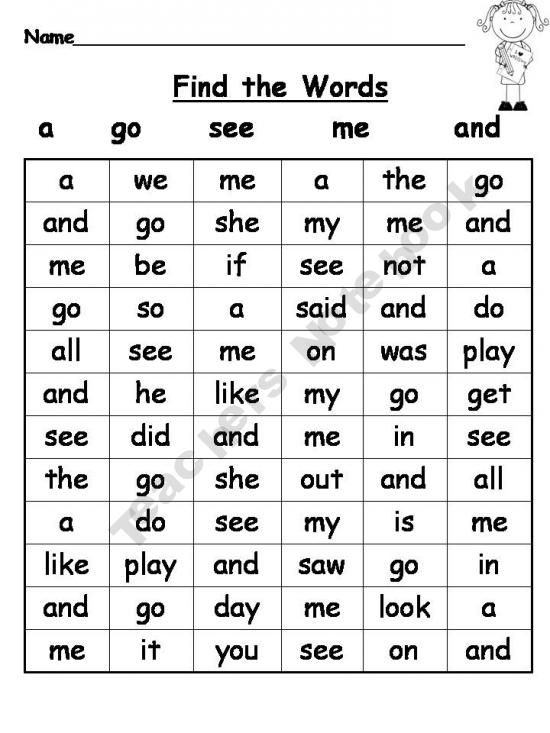
Dolch Sight Words
If you are going to teach your four year old to read, then you might want to know about Dolch sight words. These are a good place to start. Two hundred twenty words have been identified as high frequency words and the list is spread out over the years from preschool to third grade. Of course, these are not the only words he would need to learn, but the Dolch words show up in between 50 and 75 percent of all the words in books, newspapers, and magazines.
Here are the Dolch preschool sight words:
a, and, away, big, blue, can, come, down, find, for, funny, go, help, here, I, in, is, it, jump, little, look, make, me, my, not, one, play, red, run, said, see, the, three, to, two, up, we, where, yellow, you
Advertisement
Three Letter Words
Thirteen of the Dolch preschool sight words are three letter words. Other three letter, high frequency words for four year olds include:
all, and, any, are, bad, bet, big, box, boy, bye, can, car, cat, cup, cut, day, did, dog, dry, eat, eve, fly, for, get, had, has, her, him, his, hot, how, huh, hum, let, lot, man, may, mom, new, not, off, old, one, our, out, pet, put, red, run, saw, say, see, she, sit, some, the, too, top, try, two, use, was, way, who, why, yes, yet, you
Three letter words four year olds
Click to View & DownloadTeaching Your Four Year Old to Read
Before you start teaching your child to read, they need to master certain skills.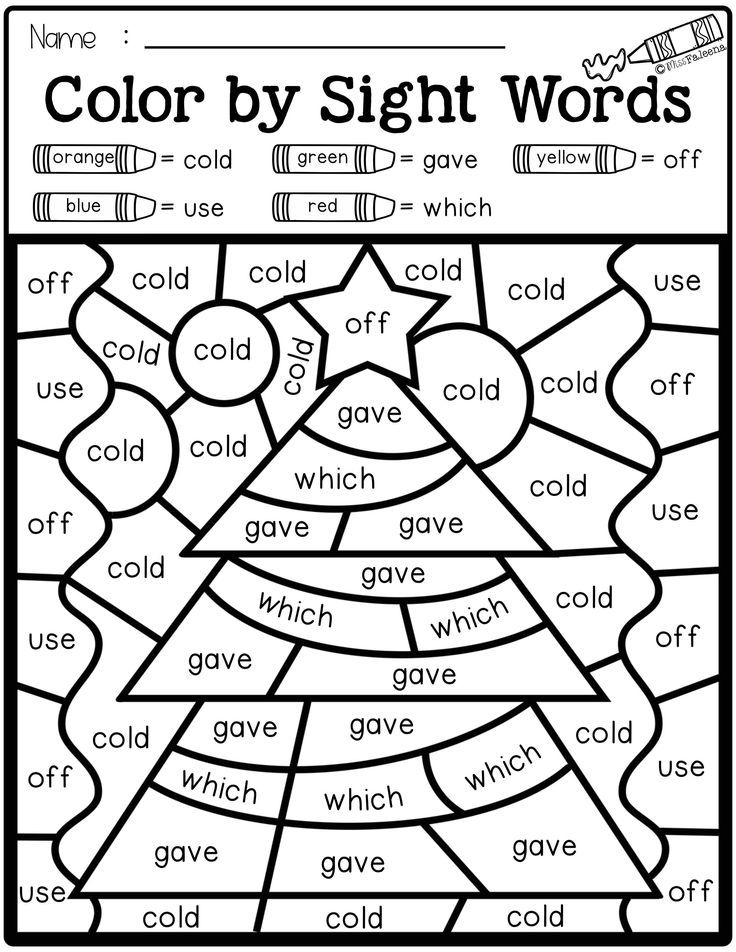 These are:
These are:
- Knowing the difference between a picture and print
- Being familiar with books and know that you read from left to right
- Knowing the upper and lower case letters of the alphabet
Next you would start teaching the sounds that are associated with each letter.
- You could use blocks with the letters on them and put them together to make words.
- You could also use cards with letters on them, like flash cards.
- Work on what sound comes at the start, middle, and end of a word.
- Practice with consonant-vowel-consonant word flashcards.
Advertisement
Tips on Teaching the Alphabet
A good place to start is with the ABC Song. While you are reading to your child, which should be done at least once a day, point out a letter occasionally and ask him what it is. Pick a letter each week and do activities with something that starts with that letter. For example, ideas for A - D include:
- make applesauce or art prints with half an apple dipped in paint
- blow bubbles
- make cookies
- make doughnuts from biscuits
Letters can be made lots of ways.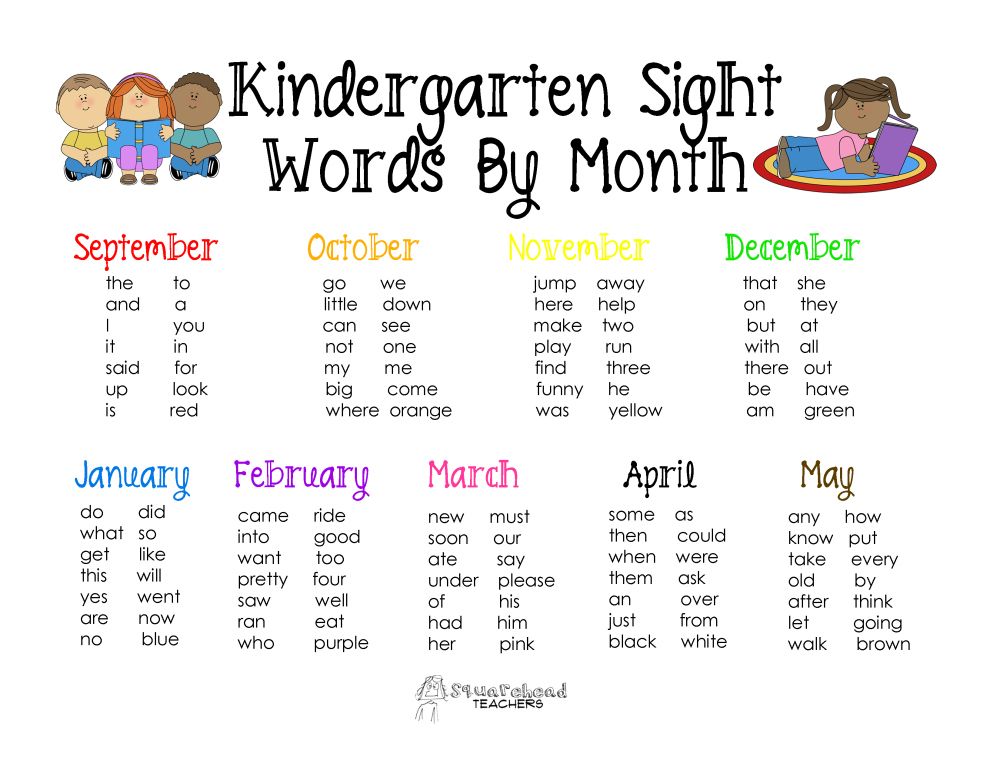
- Play Do or clay can be rolled into a worm and the letters can be shaped.
- You can take a roll of cookie dough and either make some letters with it or use cookie cutters.
- Licorice is another good food to make letters with.
- You could also buy cheap cereal and glue the pieces on paper where you have written a letter.
Start looking around and you will find lots of ways to form letters and make learning them fun.
VZGLYAD / Today the Russian language is more democratic than ever :: Author Igor Maltsev
“Comrade Stalin, you are a great scientist, you have learned a lot about linguistics,” one bard with an untuned guitar scoffed. The only problem is that the bard was heard, and Stalin, of course, was not read, but condemned.
Nevertheless, if I were you, I would carefully read at least one phrase from the article: “language reflects changes in production immediately and directly, without waiting for changes in the basis .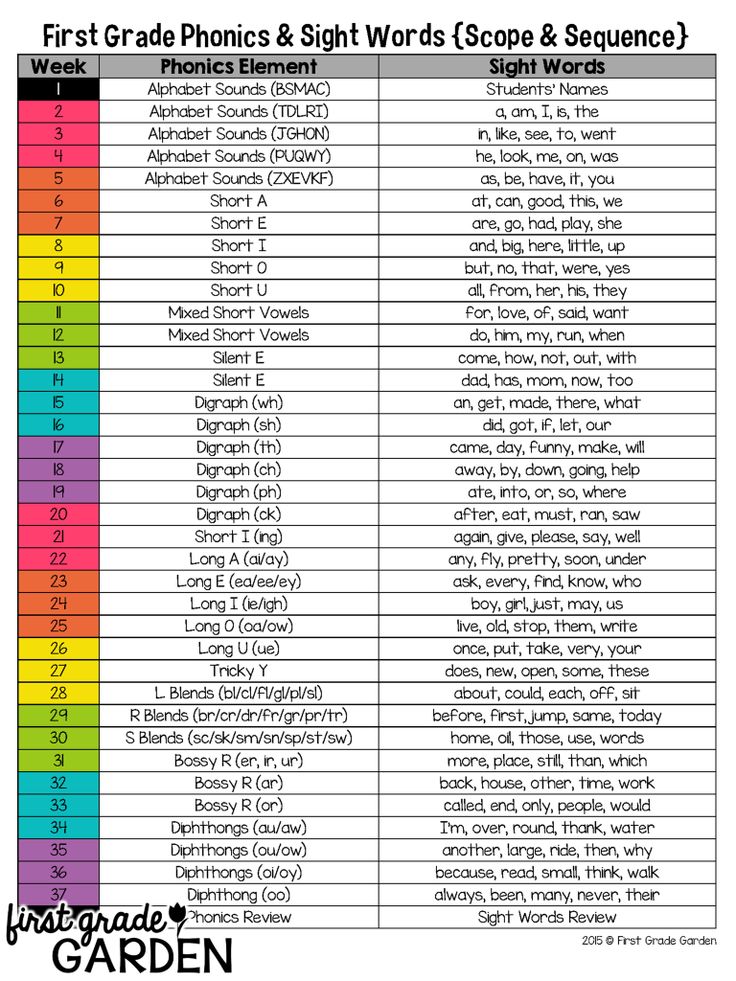 .. The growth of industry and agriculture, trade and transport, technology and science requires language to replenish his vocabulary with new words and expressions necessary for their work.
.. The growth of industry and agriculture, trade and transport, technology and science requires language to replenish his vocabulary with new words and expressions necessary for their work.
Today, every owner of an account in another American social network imagines himself a philologist cooler than I.V. Stalin, not to mention prominent fighters for the purity of the Russian language from any convocation of the State Duma. I personally observe these attempts of purification and cleansing exactly from the moment when the foreign word "deputy" was rethought, and it became a symbol of the foreign word "democracy". That is, at least since the 90s.
Therefore, it is really funny for me every time to read another wave of concern at the level of woke culture: “Almost half of the Russians surveyed support the ban on the use of foreign words if there is an analogue in the Russian language. This is evidenced by a survey portal SuperJob. The ban on anglicisms is supported by four out of ten Russians (41%).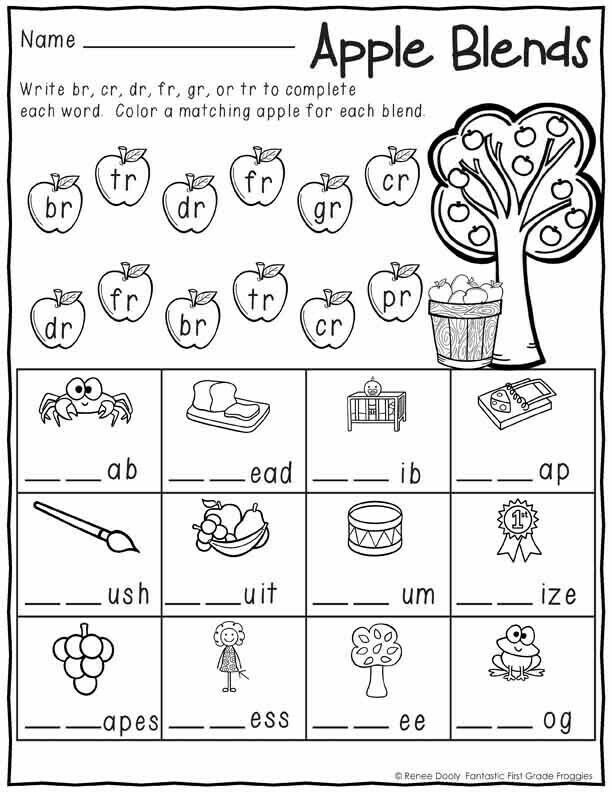 ” In the first place among the most annoying borrowings is the word “ok”. What else is annoying? Reception, challenge, trigger, party, hype, life hack, fake, longread, coach, light, handmade, skills.
” In the first place among the most annoying borrowings is the word “ok”. What else is annoying? Reception, challenge, trigger, party, hype, life hack, fake, longread, coach, light, handmade, skills.
Funny and sad. If only because, of course, half of the list also infuriates me, as well as the participants in a certain survey, whom no one has seen. Especially "hype", because it is used by people who do not know what it is, if only because they live in it - this is a word from the 1950s-1960s of the last century - when radio DJs were stupidly paid money so that he put the "correct" records so that they hit the charts. And you live in hype every day, because now the owners of the rights to music on all your radio stations are the same major people who then sell you records and streams and thus form the “hit parade” again. It’s just that they don’t give bribes directly to a DJ for hype. Do you like the word "major"? Or hit parade? Or do you prefer the Russian word “hit”, although it is German, from the word “blow” - hit-Schlag, but you do not reflect, but spread your especially valuable opinion, which, as always, is based on illiteracy, laziness and lack of horizons.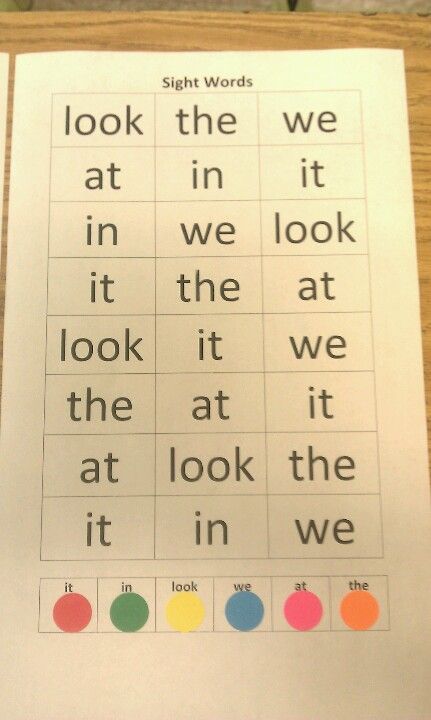
As for the “coach”, for example, I am more infuriated by the phenomenon itself: completely alien and fraudulent, swindling the gullible crowd on a pseudo-religious basis. But it is the word “coach” that pins this phenomenon so correctly, it has such a negative connotation that it cannot be confused with the old Russian word “trainer”, although wait a minute - “tren ...”. What? Yes, and with “pinning” (from the word Der Spill) it also turns out ugly, as with the vulgar Latin “pull / traginare” - “trainer”, etc. I’m deliberately trying to avoid words here that, it would seem, have foreign origin, or even worse - are direct tracing paper from a foreign one, but if I put an asterisk next to each one that is yes, then the whole text will ripple from these asterisks.
Everything else that you don't like is the result of the unstoppable process of language simplification, which correlates with the acceleration of the pace of life and work processes.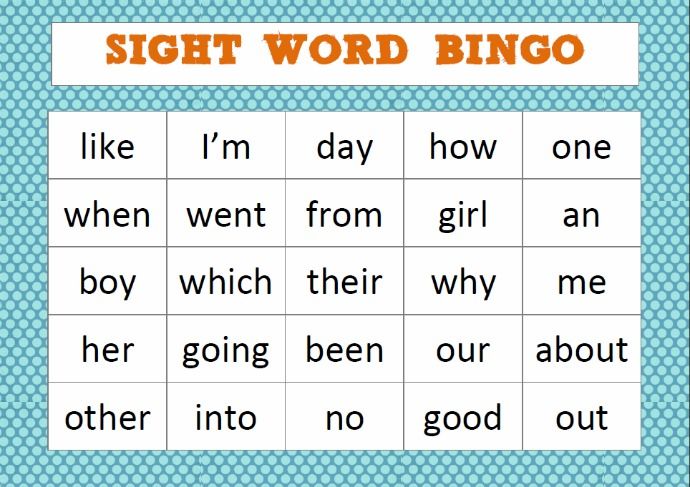 The receptionist is unfortunate - I don't like him either. But reception in a hotel, reception in a hospital, reception in an office - in Russian these are three different terms. Longread is a product of the degeneration of the journalistic profession. “Article” is no longer suitable, since, most likely, the author stuck so much copy-paste (another term) there, and is completely devoid of a sense of composition, and most often even elementary logic, that this cannot be called an article - it is a longread .
The receptionist is unfortunate - I don't like him either. But reception in a hotel, reception in a hospital, reception in an office - in Russian these are three different terms. Longread is a product of the degeneration of the journalistic profession. “Article” is no longer suitable, since, most likely, the author stuck so much copy-paste (another term) there, and is completely devoid of a sense of composition, and most often even elementary logic, that this cannot be called an article - it is a longread .
Say thanks to mom's psychologists and couch psychotherapists for the "trigger" - they most likely began to hammer this term into nervous crackers, but it remains so. Well, certainly not from the weapons theme, he came. And now, by the way, find at least one native Russian word in the expression "sofa psychotherapists." For "light" say thank you to the cola advertisement - it has prepared the introduction of this word. But I completely disagree with “party”, “challenge”, “handmade”, because it’s really stupid to use englishisms where nothing supports them and the usual words from native speech quite calmly and compactly cope with the task.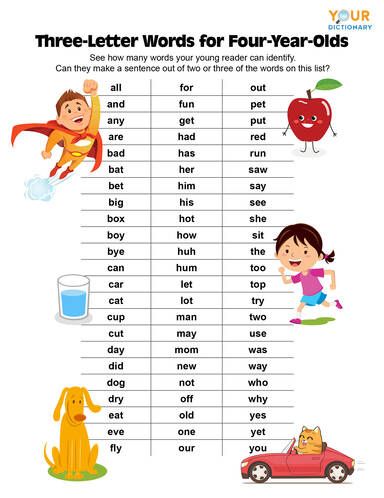 And the “challenge” is both shorter and more dynamic. So it's cheap and show-off.
And the “challenge” is both shorter and more dynamic. So it's cheap and show-off.
But the problem is that it is definitely possible to resist the senselessness of borrowing - not all, but some of them - with patience. A bunch of new buzzwords usually die with fashion pretty quickly. And armed with knowledge. Because if someone once again decides to give a decisive battle to borrowed foreign words, you just give him a couple of control words - offhand, that's just what lies on the surface: trade, barn, school, silo, suit, bread, bed, cabbage, beet, fair, drum, pioneer - are they foreign?
The correct answer is everything. And this is only so, on top, and if you go deeper, you may not swim out. So if one of the first signs of foreign words in Russian is the beginning with “F” (which letter was specially invented for them) or with “A”, then the first sign of a fighter for the purity of the language is usually a complete lack of not only specialized education, but and at the same time just education as such.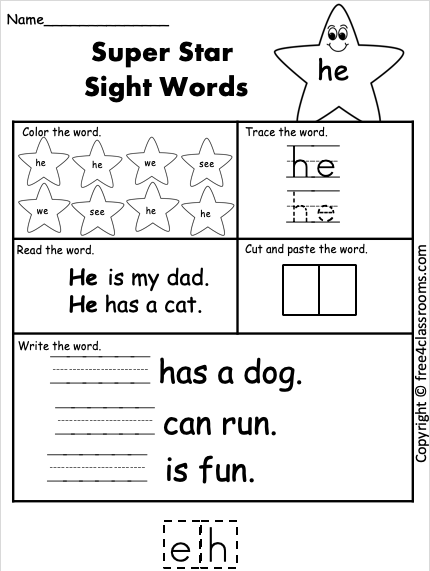 Faculty of Political Science (two non-Russian words) do not offer.
Faculty of Political Science (two non-Russian words) do not offer.
In the meantime, we can only be glad that today the Russian language is united and democratic as never before. Because there are no more class dialects that Comrade Stalin wrote about. "Noble language", "bourgeois language" - as opposed to "proletarian language", "peasant language". After all, the so-called elite speak exactly the same language as the staff serving it. Opposition authors, who pretend to be the intellectual elite, sitting in the backyards of Haifa, say and write "theirs" in all seriousness in the same way as the migrant workers of Moscow. The victims of the Unified State Examination do not know the meaning of the words that were widely used twenty years ago, not to mention the vocabulary of Russian classical literature. But it's democratic.
So don't be afraid - this language will grind anything, as part of any hype challenge.
VZGLYAD / The harder you press on Russia, the more united it becomes :: Author Irina Alksnis
For many years now I have been writing texts for November 4th.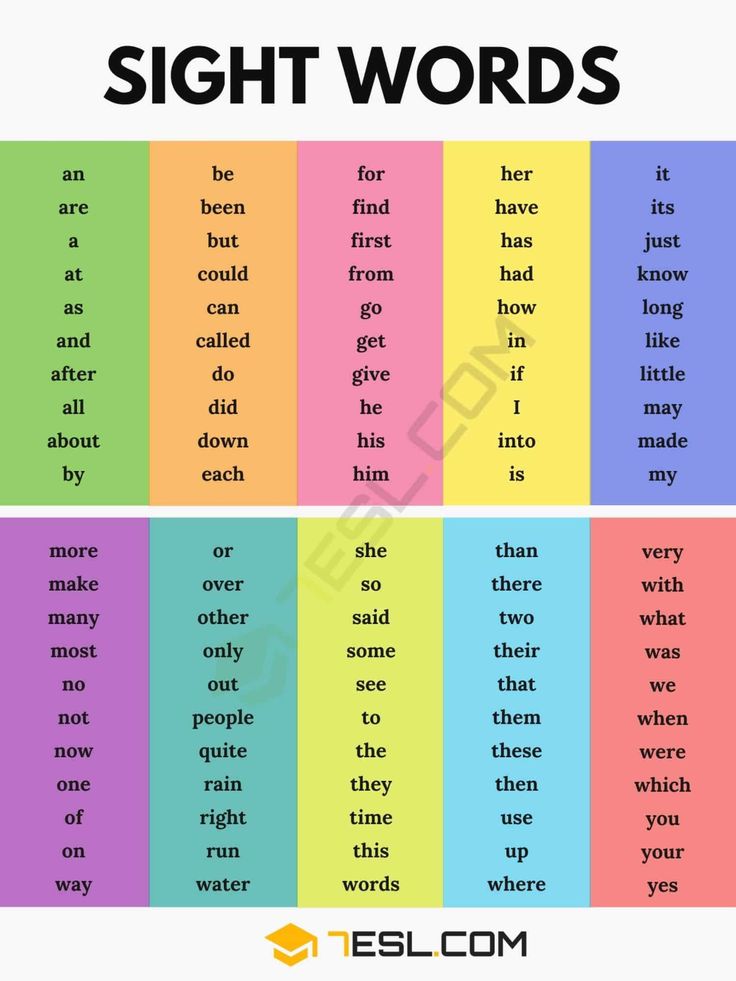 But, as in so many other things this year, this time I feel like I'm in completely unfamiliar territory for myself, that I'm facing a completely new challenge.
But, as in so many other things this year, this time I feel like I'm in completely unfamiliar territory for myself, that I'm facing a completely new challenge.
What were my November 4 texts about in previous years? About overcoming our historical traumas and social splits, about healing the wounds of the past, about nurturing in Russia something new in its quality of civil peace, social integrity and national unity.
Over the past decade and a half or two decades, Russian society has developed the notion that popular unity in Russia means building a society of justice, freedom, and general well-being. Probably, it is precisely with this that the fact that November 4 was slowly and rather heavily included in the calendar of truly folk holidays is connected with this. National Unity Day critics invariably reproached for its official character.
This year has forced us to get rid of illusions. The year 2022 has shown that all our beautiful ideas about civil peace and building a better future have not lost their relevance, but they are clearly secondary compared to the main one.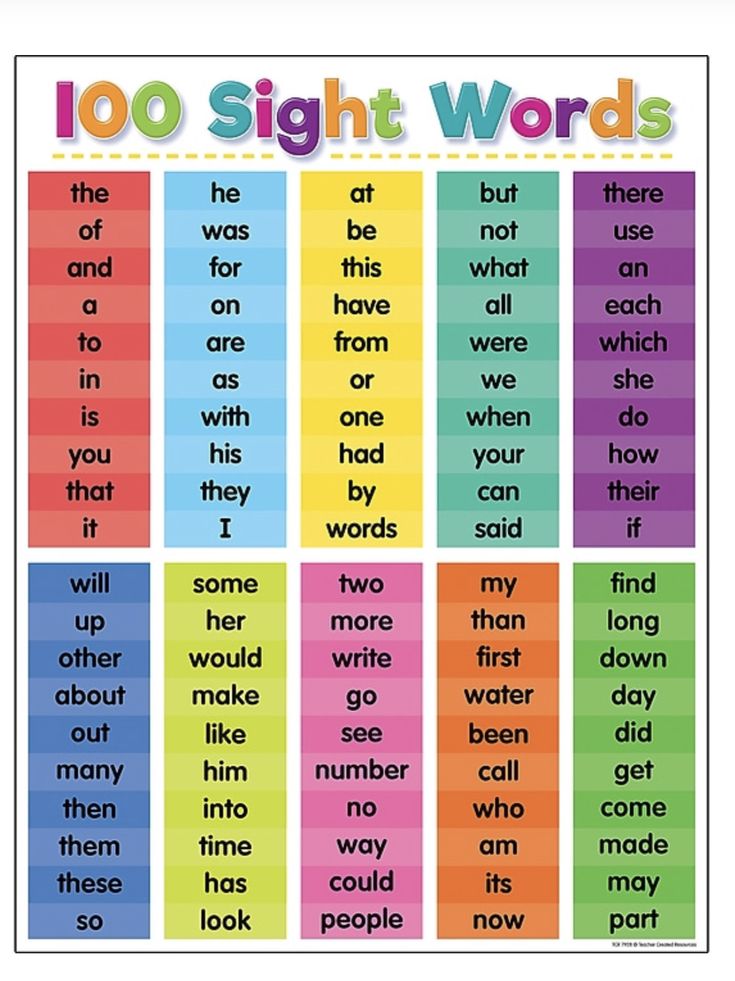 And it, this is the main thing, lies in the fact that national unity for Russia is the key, most important factor in its existence. And not even the state, but the people and the country. Popular unity is the key to our survival in the most literal sense of the word.
And it, this is the main thing, lies in the fact that national unity for Russia is the key, most important factor in its existence. And not even the state, but the people and the country. Popular unity is the key to our survival in the most literal sense of the word.
This state of affairs has been a reality for many centuries - we knew this very well from the lessons of history. But for many, it was a surprise that this remains relevant in the present. And, probably, it will continue in the future, forever - in any case, as long as Russia exists.
As they say, our rose-colored spectacles shattered the lenses inside. It turned out that the existential threats to Russia, which seemed to us obsolete, completely gone, are alive and fully retain their relevance and significance.
We thought that in today's developed world, all this is simply impossible. All those challenges and the struggle for the physical survival of the country, which has been a part of the life of our people since the time of the Horde, all our Patriotic Wars - be it 1609-1618, 1812, 1941-1945 - have remained in history and are simply impossible in the world of triumphant civilization.
But it turned out that in fact the main things in the world pass unchanged through centuries and millennia. And no achievements of scientific and technical and even humanitarian progress do not change them.
Russia itself was, is and, apparently, will forever remain a challenge to its geopolitical opponents. Because they see in the very existence of our country a universal injustice that deprives them of access to colossal natural resources. This means that when the situation becomes critical for them, they discard the diplomatic politeness and humanistic ideals that they raised as their banner, and they begin to use completely different methods - in an attempt to correct this “mistake”.
And perhaps we should thank the collective West - for how quickly the mask of civilization and humanism has slipped off them in recent months, for how openly their racist-Russophobic insides have manifested themselves. Which is not about the geopolitical struggle of the great powers in white gloves, but about the genocide of races and peoples who had the audacity to develop the lands and resources needed by the white master.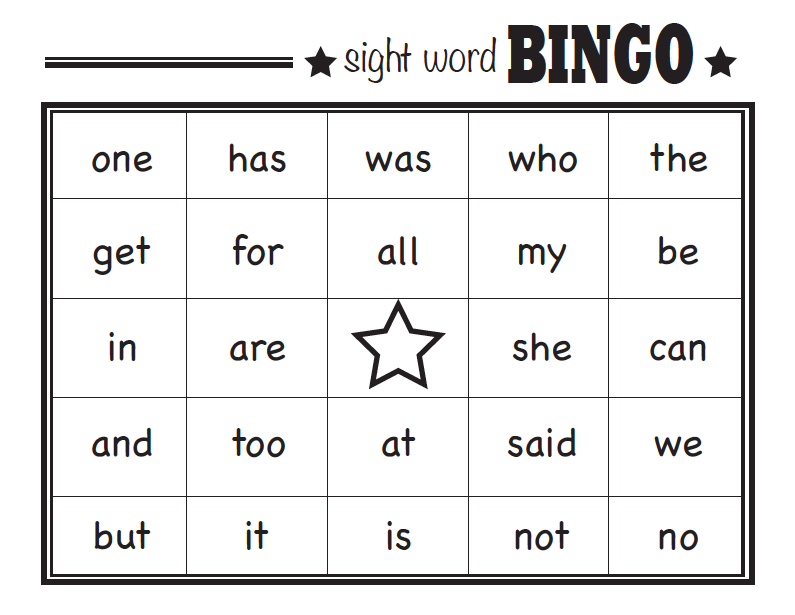
In the eight and a half months since the start of the NWO, Russian society has become more and more aware that the collective West is waging a war of annihilation against us. Simply because we interfere with it. Well, Ukraine turned out to be a convenient and - we must pay tribute - an excellently prepared weapon against Russia.
True, even this weapon demonstrates frankly low efficiency, so the West has to move more and more from hybrid methods to direct participation in the war against Russia.
And he can be congratulated on his impressive “success”: according to a poll by the All-Russian Public Opinion Research Center, in one year the proportion of our fellow citizens who believe that there is national unity in Russia jumped by 25 points - from 31 to 56%. Moreover, the majority directly connects this with the ongoing events and specifically with the attitude of Western countries towards us.
And you can be sure that everything is just beginning: history has repeatedly demonstrated that the harder you put pressure on Russia, the more united it becomes.